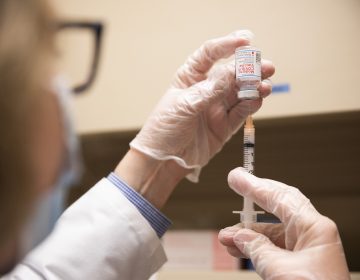Philadelphia Nursing Home to close in October
Philadelphia Nursing Home will close by the end of the year because of financial troubles, city officials said on Tuesday.

Philadelphia Nursing Home. (Fairmount Long Term Care)
Philadelphia Nursing Home will close by the end of the year because of financial troubles, city officials said on Tuesday.
For more than 20 years, the city has paid the nonprofit Fairmount Long Term Care to manage Philadelphia Nursing Home at 2100 W. Girard Ave.
Many of the residents there are on Medicaid, which comes with state and federal funding. However, Medicaid does not pay as much as private insurance providers do.
Also, the number of residents has dropped significantly since the pandemic, which means even less funding from Medicaid.
The facility has around 400 beds. There are 268 residents there now, compared to 373 in 2018, said James Garrow, communications director for the Philadelphia Health Department.
Garrow said the city has filled in the gaps.
“We’re already losing money every year,” he said. “But then also we have to put out a large amount of money just to bring the facility up to best standards.”
He said the old facility needs a lot of upgrades, like new boiler and emergency generator systems, which would cost millions of dollars.
The city and the nursing home worked on the closure for months. The city said they have submitted a closure plan to the Pennsylvania Department of Health, which approved it.
The city and nursing home say they will work with residents to get them to another site, and help the staff find new jobs. The goal is to close the site by late October, but Garrow said that is a flexible date that can move because the priority is to get residents in other locations that suit their needs.
A spokesperson for Fairmount Long Term Care wrote in a statement that they “are saddened by the news of the closure of the Philadelphia Nursing Home, even though we understand that given the declining census, the City’s decision to close the facility likely was inevitable. Our focus remains on the residents, to ensure their continued care and that they are transitioned to other facilities or community-based services by the end of October.”
The land belongs to the state, not the city, so it is unclear what will happen to it after the nursing home closes.
Other nursing homes in Pennsylvania are also struggling because of how much less Medicaid reimburses per patient, compared to private insurance providers, said Zach Shamberg, president and CEO of Pennsylvania Health Care Association, an advocacy group for long term care facilities.
He points to another example: Fox Subacute Center at Warrington in Bucks County specializes in caring for residents who need ventilators, and it closed around a month ago.
“Every time a nursing home shuts its doors, like Fox Subacute at Warrington or the Philadelphia Nursing Home, that should sound the alarm for every single legislator that something needs to be done.”
The Pennsylvania Health Care Association said the overall Medicaid reimbursement rate for long term care in Pennsylvania is low compared to nearby states like New Jersey, Delaware, and Maryland, and Pennsylvania urgently needs to increase Medicaid funding.
Shamberg said nursing homes in Pennsylvania faced these financial hurdles before the pandemic, but the pandemic made things worse.
Some of these issues go beyond Pennsylvania. The American Health Care Association, which represents nursing homes across the country, found in a recent survey of more than 700 nursing homes that 61% are limiting new admission because of staffing shortages, and nearly 60% are operating at a loss.
WHYY is your source for fact-based, in-depth journalism and information. As a nonprofit organization, we rely on financial support from readers like you. Please give today.







